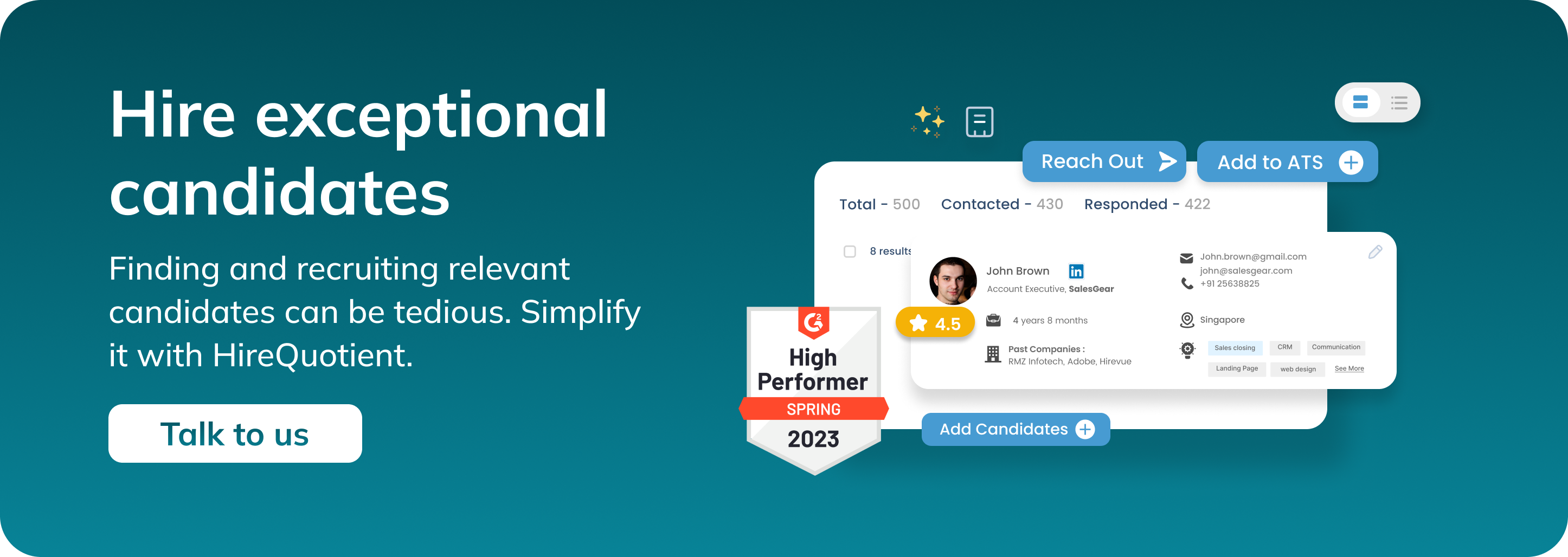What Is Equal Opportunity Employer? Advantages and Disadvantages of Being One
Published on May 5th, 2023
The concept of equal opportunity employer has been around since the 1960s, but it still causes confusion for many employers and job seekers. Many recruiters may wonder what being an equal opportunity employer entails, and what benefits and drawbacks come with it. So, what is an equal opportunity employer, and what are the pros and cons of being one? Read on to find out.
Equal Opportunity Employer– What is it?
First and foremost, what is an equal opportunity employer? In short, an equal opportunity employer is a company that pledges to provide equal employment opportunities to all individuals, regardless of their race, gender, religion, sexual orientation, age, and other protected characteristics. This means the company cannot discriminate against any candidate during the hiring process and must provide everyone with equal chances of getting hired, promoted, and trained.
Advantages of Being an Equal Opportunity Employer
- Diversity and Inclusion: One of the most significant advantages of being an equal opportunity employer is that it helps to build a diverse and inclusive workplace. Today’s workforce is incredibly diverse, and a company that values and embraces diversity can attract more talent and increase employee engagement and retention. Studies have shown that companies with diverse teams outperform their peers and have a better reputation among job seekers and customers.
- Skip Legal Risks: Another significant advantage of being an equal opportunity employer is that it helps to avoid legal and financial risks. Discrimination lawsuits and penalties can be costly for employers and can damage a company’s reputation and brand. By pledging to provide equal opportunities, companies can minimize the risk of legal issues and can demonstrate their commitment to social responsibility and ethical business practices.
- Enhance reputation: Being an EOE can enhance an employer's reputation as an inclusive and diverse workplace, which can help to attract more customers and clients.
- Better employee morale: When employees feel that they are being treated fairly and equitably, they are more likely to be satisfied with their job and have better morale.
Disadvantages of Being an Equal Opportunity Employer
- The Extra effort: Some employers may find it challenging to overcome unconscious biases and stereotypes when making hiring decisions. It may also require extra effort and resources to provide accommodations for employees with disabilities or to create a workplace that is inclusive for all. Additionally, there may be situations where an employer needs to consider qualifications and experience over diversity when making hiring decisions, which could lead to criticism and backlash from some groups.
- Increased paperwork: Being an EOE requires additional paperwork and documentation, which can be time-consuming and costly.
- Increased competition for positions: Being an EOE means that employers must consider all applicants equally, which can result in more competition for positions.
- Higher training costs: Employers may need to invest more in training and development to ensure that all employees have equal access to opportunities.
- Misunderstanding of the concept: The concept of EOE can be misunderstood, and some employees may feel that they are being discriminated against if they do not get a promotion or job opportunity.
How HireQuotient Supports Equal Opportunity Employers
EasySource by HireQuotient is an automated talent sourcing tool that can help employers to support EOE in the workplace. The platform uses AI to find relevant candidates irrespective of their race or religion but based on their skills and experience, removing any identifying information that may lead to unconscious bias. This helps employers to build a more diverse and inclusive candidate pool from the outset.
EasySource also offers automated targeted outreach strategies across multiple platforms to reach prospects, ensuring that all candidates have an equal opportunity to apply for the position.
In summary, being an equal opportunity employer means treating all candidates and employees fairly and providing them with equal opportunities to succeed and grow. While there are some potential challenges and drawbacks to this approach, the benefits far outweigh them. By embracing diversity and creating a workplace that values every individual's contributions, companies can increase their reputation, improve retention and engagement, and avoid legal issues and penalties. So, if you’re a recruiter or employer, consider becoming an equal opportunity employer and make a positive difference in your workplace and society.
Authors

Radhika Sarraf
Radhika Sarraf is a content specialist and a woman of many passions who currently works at HireQuotient, a leading recruitment SaaS company. She is a versatile writer with experience in creating compelling articles, blogs, social media posts, and marketing collaterals.

Hire the best without stress
Ask us how
Never Miss The Updates
We cover all recruitment, talent analytics, L&D, DEI, pre-employment, candidate screening, and hiring tools. Join our force & subscribe now!
Stay On Top Of Everything In HR
